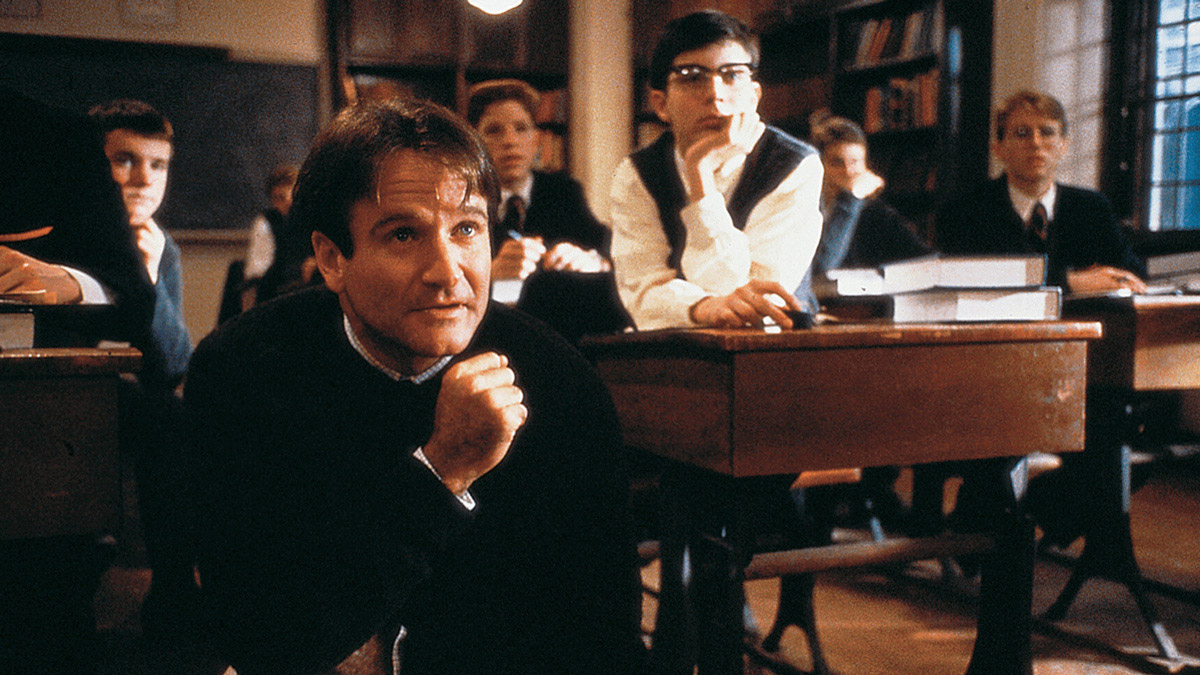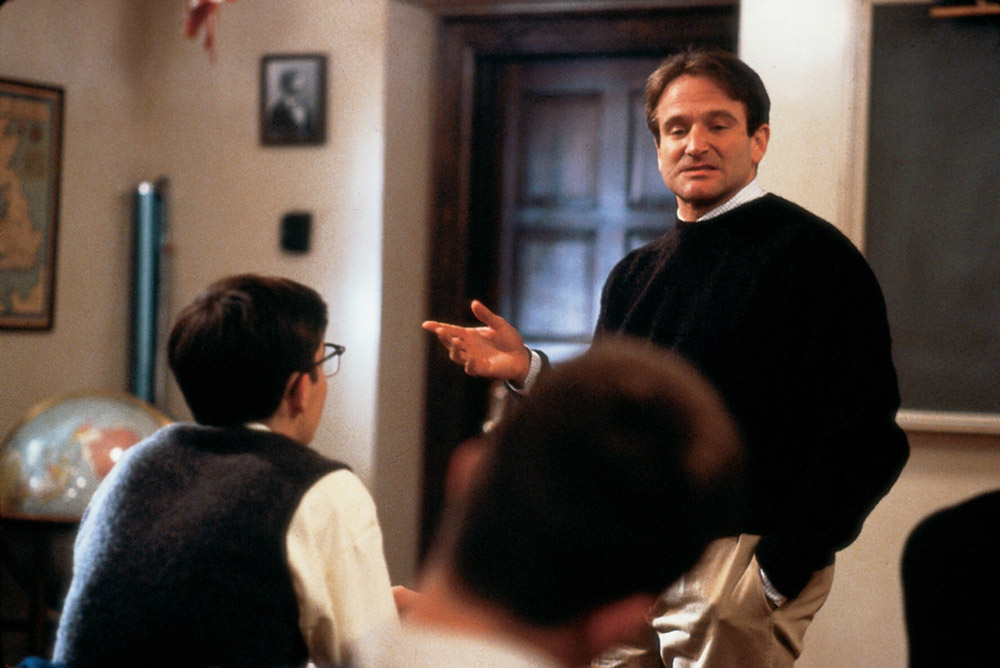
(c) Photofest / Getty Images
What is reflected in “Dead Poets Society”: Robin Williams’ eyes filled with sadness
2019.01.21
The appearance of "Robin Keating"
I wonder if there has ever been a movie where the story and the growth process of the actors who played the roles were so closely linked. At the center of this is, of course, Robin Williams, who plays John Keating, an innovative and charming teacher who inspires a change in the way his students think and ends up leaving the school prematurely.
As soon as filming began, Robin tried to calm down the people around her by making a series of jokes, but during the actual performance, she focused on acting more seriously, covering 15% of her lines with ad-libs. Weir accepted, calling him "Robin Keating." A lead actor who ignores a well-written script and goes berserk is definitely not an easy role for a director to handle. However, Weir had no choice but to take his hat off to Robin's tremendous power, which grew more passionate with his acting as his concentration increased.

“Dead Poets Society” (c)Photofest / Getty Images
Before making his acting debut, Robin was one of the elite 20 students admitted to New York's prestigious Juilliard School on scholarship. His classmates included Kevin Kline, William Hurt, Mandy Patinkin, and Christopher Reeve, with whom he would become a lifelong friend. At Juilliard, Robin mastered Stanislavski's theory, which is the bible of acting for all actors (an acting theory that emphasizes inner expression and eliminates exaggerated acting on the outside). He was on the scene. Therefore, it would be wrong to view his serious career, from ``Dead Poets Society'' to ` `Good Will Hunting '' (1997), which won him the Academy Award for Best Supporting Actor, as simply a comedian's makeover strategy. This was the work of an actor backed by theory who used his skills to embody the psychology of his character.

